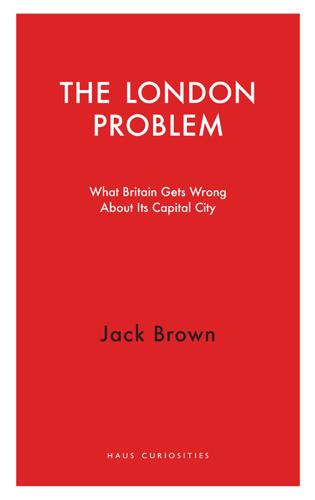
The London Problem: What Britain Gets Wrong About Its Capital City
by
Jack Brown
Published 14 Jul 2021
‘Millwall 0–1 Derby: Game overshadowed by fans booing players taking a knee before kick-off ’, BBC, 6/12/20. 27.C. Hope, ‘National Trust faces anger after chairman defends Black Lives Matter movement’, Telegraph, 6/11/20. 28.J. Brown, ‘London, UK’, op. cit. 29.A. Gimson, R. Jolley, S. Katwala, P. Kellner, A. Massie & R. Miranda, ‘This Sceptred Isle: Pride not prejudice across the nations of Britain’, British Future, 5/21. 30.M. Smith, ‘Where is London most and least popular?’, op. cit. 31.D. Hill, ‘In some ways, London is not as socially liberal as we might think’, op. cit. 32.M. Savage, ‘“Culture wars” are fought by tiny minority – UK study’, Guardian, 24/10/20. 33.H.
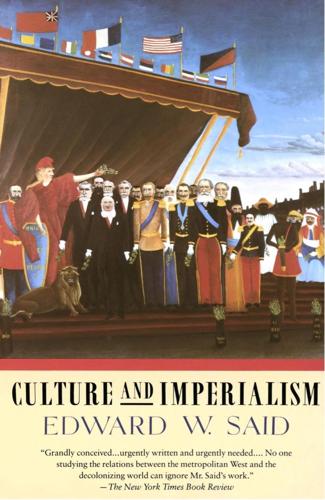
Culture and Imperialism
by
Edward W. Said
Published 29 May 1994
In turn such French or English places have a kind of export value: whatever is good or bad about places at home is shipped out and assigned comparable virtue or vice abroad. When in his inaugural lecture in 1870 as Slade Professor at Oxford, Ruskin speaks of England’s pure race, he can then go on to tell his audience to turn England into a “country again [that is] a royal throne of kings; a sceptred isle, for all the world a source of light, a centre of peace.” The allusion to Shakespeare is meant to re-establish and relocate a preferential feeling for England. This time, however, Ruskin conceives of England as functioning formally on a world scale; the feelings of approbation for the island kingdom that Shakespeare had imagined principally but not exclusively confined at home are rather startlingly mobilized for imperial, indeed aggressively colonial service.
…
Within the last few years we have had the laws of natural science opened to us with a rapidity which has been blinding by its brightness; and means of transit and communication given to us, which have made but one kingdom of the habitable globe. One kingdom;—but who is to be its king? Is there to be no king in it, think you, and every man to do that which is right in his own eyes? Or only kings of terror, and the obscene empires of Mammon and Belial? Or will you, youths of England, make your country again a royal throne of kings; a sceptred isle, for all the world a source of light, a centre of peace; mistress of Learning and of the Arts;—faithful guardian of great memories in the midst of irreverent and ephemeral visions;—faithful servant to time-tried principles, under temptation from fond experiments and licentious desires; and amidst the cruel and clamorous jealousies of the nations, worshipped in her strange valour of goodwill towards men?
…
What is compelling in Ruskin’s hortatory tones is that he not only believes fervently in what he is advocating, but also connects his political ideas about British world domination to his aesthetic and moral philosophy. Insofar as he believes passionately in the one, he also believes passionately in the other, the political and imperial aspect enfolding and in a sense guaranteeing the aesthetic and moral one. Because England is to be “king” of the globe, “a sceptred isle, for all the world a source of light,” its youth are to be colonists whose first aim is to advance the power of England by land and sea; because England must do that “or perish,” its art and culture depend, in Ruskin’s view, on an enforced imperialism. Simply ignoring these views—which are readily at hand in almost any text one looks at in the nineteenth century—is, I believe, like describing a road without its setting in the landscape.
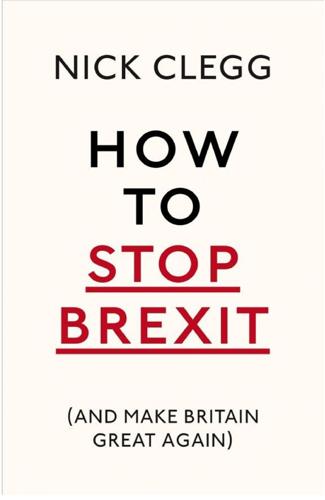
How to Stop Brexit (And Make Britain Great Again)
by
Nick Clegg
Published 11 Oct 2017
Far from returning us to our heritage as a great and respected global power, Brexit risks making us an object of mockery and bewilderment around the world. Indeed, the world watches on with increasing bafflement at the soap opera of British politics. Where has that great British tradition of pragmatism, sangfroid and common sense gone? To many foreign observers, Shakespeare’s ‘precious stone in the silver sea’ has lost its shine; the sceptred isle has lost its lustre. Today, except for a handful of tiny outposts such as the Pitcairn Islands (population: forty-two), the globe is no longer dominated by a very British pink colour. Despite this incontestable truth, some of the loudest – and most deluded – critics of our involvement in the European Union still cleave to a vision of a powerful ‘Anglosphere’ of nations, with Britain at the heart of a post-colonial network stretching from America to Australia via the subcontinent.
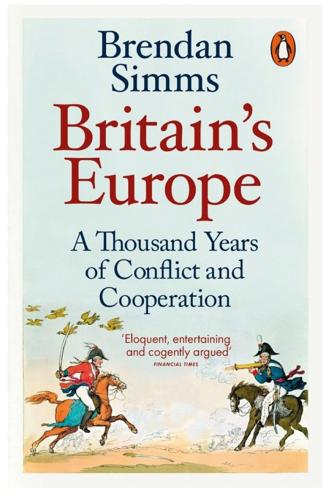
Britain's Europe: A Thousand Years of Conflict and Cooperation
by
Brendan Simms
Published 27 Apr 2016
More recently, Raphael Samuel, the radical founder of the History Workshop movement and a very different historian to Bryant in most ways, wrote Island Stories; there might be many stories, but he did not doubt that Britain’s was primarily an island story. To underline the point, the jacket of the second volume, subtitled ‘Theatres of Memory’, features the white cliffs of Dover, as if they were a rampart to keep out foreign – that is, European – influences.1 Christopher Lee’s BBC Radio 4 broadcasts on British history were entitled This Sceptred Isle (1995),2 another borrowing from John of Gaunt’s speech. A recent collection by prominent historians speaks of the British Isles being A World by Itself,3 taking its cue once again from the Bard, this time from Cymbeline. The former Conservative Secretary of State for Education Michael Gove, who has taken a particular interest in the teaching of history in schools, is very much part of this tradition.
…
Notes INTRODUCTION: OUR EUROPEAN STORY 1. Republished in 2005 by the think-tank Civitas; Arthur Bryant, Freedom’s Own Island. The British Oceanic Expansion (London, 1986); Raphael Samuel, Island Stories. Unravelling Britain. Theatres of Memory, Volume II (London and New York, 1998). 2. Christopher Lee, This Sceptred Isle (London, 1997). Another example of the insular theme would be Norman Longmate, Island Fortress. The Defence of Great Britain 1603–1945 (London, 1991). 3. Jonathan Clark (ed.), A World by Itself. A History of the British Isles (London, 2010). 4. Quoted in Richard J. Evans, ‘The Wonderfulness of Us (the Tory interpretation of History)’, London Review of Books, vol. 33, no. 6, 17 March 2011, pp. 9–11 (p. 9). 5.
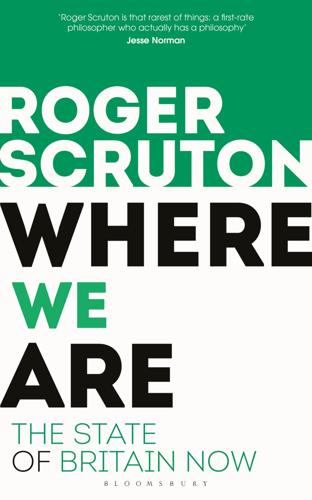
Where We Are: The State of Britain Now
by
Roger Scruton
Published 16 Nov 2017
However, even if the British are increasingly ignorant of their country’s past, their loyalties have a kind of historical depth that resists every attempt to rub them to the wafer-thin time-slice of the now. We live with two rival conceptions of our past, standing to either side of the central icon, like warring heraldic beasts. On one side there is the proud people, who defended their ‘sceptred isle’ for a millennium, during the last centuries of which, in a burst of self-confidence, they carried trade, self-government and law around the world. On the other side there is the race of grasping imperialists, who spread chaos abroad and conflict at home, in pursuit of world domination. The two caricatures are those given by the blimps and the intellectuals, as Orwell saw them, and of course both build upon truths as well as falsehoods.
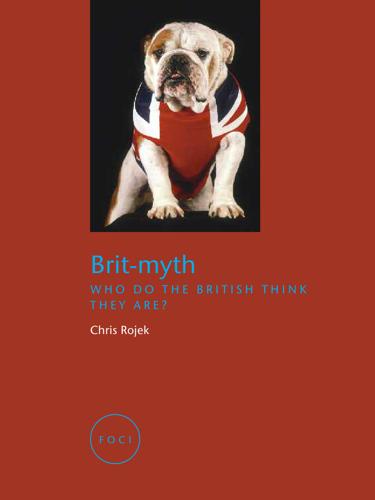
Brit-Myth: Who Do the British Think They Are?
by
Chris Rojek
Published 15 Feb 2008
It is a matter of regarding your life as one episode in the national story. The nation’s ‘skin’ is your skin, the nation’s interests are your interests, and an insult to the nation is a personal insult. As John of Gaunt said of England, in William Shakespeare’s Richard ii (Act 2, Scene 1): This royal throne of kings, this sceptred isle, This earth of majesty, this seat of Mars, This other Eden, demi-Paradise; 204 BRIT-MYTH This fortress built by Nature for herself Against infection and the hand of war; This happy breed of men, this little world; This precious stone set in the silver sea, Which serves it in the office of a wall, Or as moat defensive to a house, Against the envy of less happier lands; This blessed plot, this earth, this realm, this England . . .
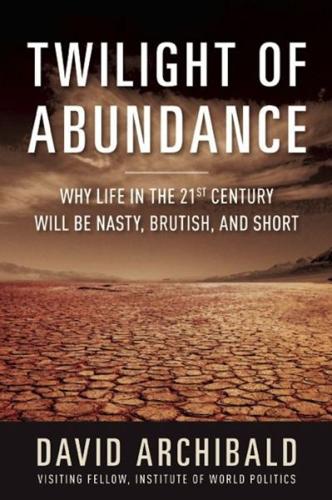
Twilight of Abundance: Why the 21st Century Will Be Nasty, Brutish, and Short
by
David Archibald
Published 24 Mar 2014
The average growing season in the mid-nineteenth century was 240 days, with the shortest, in 1859, being just 181 days. In the best-case scenario, the world and the UK are returning to the climate of the mid-nineteenth century. So how much less food will the UK be able to grow when the length of the growing season is reduced by 45 percent? That is something for the sceptred isle to ponder. The year 1859 is also significant in that it is the year when glaciers started retreating worldwide in response to a Sun that was becoming more active. The aa index, a measure of the Sun’s geomagnetic activity, increased from a low of 5 in the mid-nineteenth century to a peak of 37 in 2003.
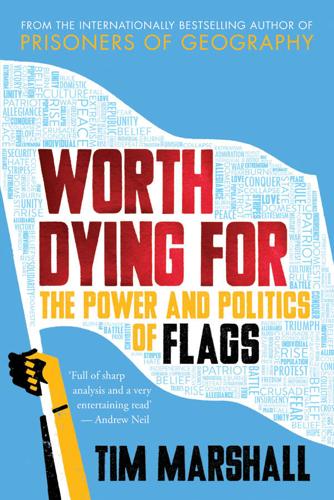
Worth Dying For: The Power and Politics of Flags
by
Tim Marshall
Published 21 Sep 2016
Among England’s myriad ethnic minorities, the British flag appears to be more attractive than the English version; polling suggests that this is because it is considered to be more inclusive of everyone, whereas the English flag, to some, signifies ‘whiteness’. A YouGov/British Future poll (‘This Sceptred Isle: 2012’) threw up some fascinating insights into the differences. The unifying factor was the monarchy: 84 per cent of English respondents associated the flag with the monarchy, as did 82 per cent of Welsh and 80 per cent of Scots. The British military was also associated with the flag for 80 per cent of English, 77 per cent of Welsh and 70 per cent of Scots.
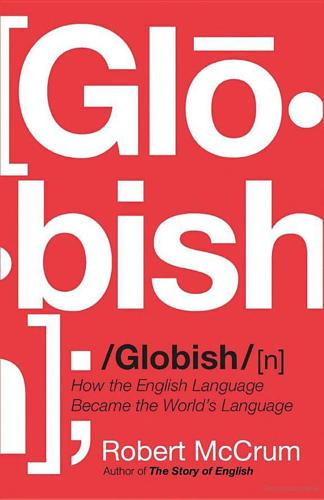
Globish: How the English Language Became the World's Language
by
Robert McCrum
Published 24 May 2010
‘At some moment in the late 1580s,’ Greenblatt writes in his biography, Will in the World, ‘Shakespeare walked into a room – most likely in an inn in Shoreditch, Southwark, or the Bankside – and quite possibly found many of the leading writers drinking and eating together: Christopher Marlowe, Thomas Watson, Thomas Lodge, George Peele, Thomas Nashe, and Robert Greene.’ This extraordinarily gifted group, writes Greenblatt, ‘shared a combination of extreme marginality and arrogant snobbishness’. At that moment, much the same could have been said of England and its language. Shakespeare’s ‘sceptred isle’ was still a small nation, but one just beginning to find its international voice. Sir Philip Sidney, a true Elizabethan, at once a poet, courtier and soldier, observed: ‘But for the uttering sweetly and properly the conceite of the minde … which is the ende of thought … English hath it equally with any other tongue in the world.’
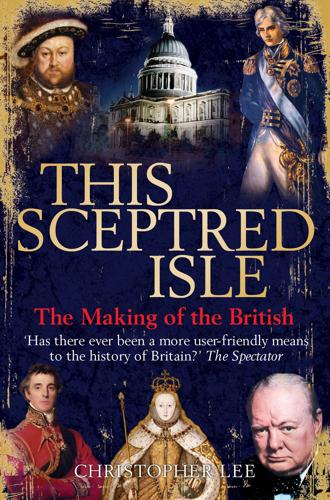
This Sceptred Isle
by
Christopher Lee
Published 19 Jan 2012
Christopher Lee is a writer, historian and broadcaster, best-known for writing the radio history series This Sceptred Isle for the BBC. Lee was the first Quatercentenary Fellow in Contemporary History and Gomes Lecturer at Emmanuel College, Cambridge. He researched The History of Ideas at Birkbeck, University of London. He has written nearly thirty books and more than one hundred radio plays. Constable & Robinson Ltd 55-56 Russell Square London WC1B 4HP www.constablerobinson.com First published in the UK by BBC Books, 1997 This updated edition published by Constable, an imprint of Constable & Robinson Ltd., 2012 Copyright © Christopher Lee 1997, 2012 The right of Christopher Lee to be identified as the author of this work has been asserted by him in accordance with the Copyright, Designs and Patents Act 1988 Extracts from A History of the English-speaking Peoples by Sir Winston S.
…
We both tacitly understood that I would be watched over by Howard Watson – an exceptional copy editor with the confidence an author too often needs (well at least this one does). My biggest Thank You letter is to my sometime publisher, now my agent and always my friend, Christopher Sinclair-Stevenson who has never sent nor received an email or made a mobile telephone call, and does not care that Google is a verb. Introduction The original edition of This Sceptred Isle was generously received at seemingly every level. It set out to explain the story of these, the British islands. Later volumes covered the twentieth century and, most importantly, the origins, growth and end of British colonial and imperial history. Put together, the three books suggested the character of the people who became the modern-day British and to some extent the making of Britishness.
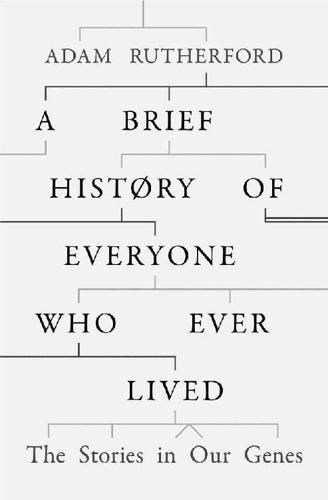
A Brief History of Everyone Who Ever Lived
by
Adam Rutherford
Published 7 Sep 2016
Even when we know the genome intimately, and the patterns of inheritance, and the history of the DNA, and the migration patterns of the people who carried it, and evolutionary pressures that led to the perpetuation of the genes and the phenotype – even when we know all that, how it manifests can still be mysterious and surprising. Anyone who says differently is selling something. The British are coming While we’re in the north-east of Europe, let me indulge in some national pride to scrutinize this sceptred isle, and the finest genetic analyses of a people yet undertaken: just who are the British? Archaeologists sometimes use technological cultures as being definitional of people or eras. These are often broad and scattered characteristics incorporating a multitude of skills. The Beaker people, for example, made distinctive drinking cups and vessels over a couple of millennia beginning almost 5,000 years ago, and also had bronze and other metalworking skills, shot arrows, and were spread all over Europe, with many subdivisions across the land.
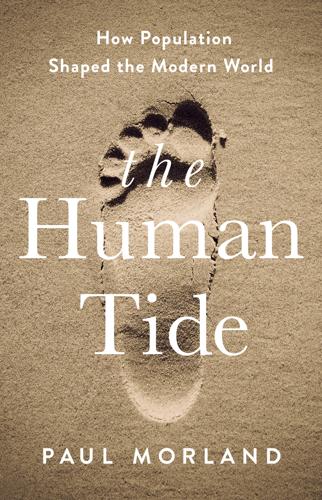
The Human Tide: How Population Shaped the Modern World
by
Paul Morland
Published 10 Jan 2019
No one expressed it more bluntly or alarmingly than the German philosopher Nietzsche: ‘The great majority of men have no right to existence, but are a misfortune to higher men.’5 This is a sentiment less likely to have been heard when the population was small and growing slowly at best, and when most of the poor were not far from the edge of starvation. Explaining Demographic Take-off Why was demographic growth happening and why in particular was it happening in England? To some extent, it had to do with good luck. The sceptred isle of which Shakespeare had written, with a civil war then still ahead of it, became once more a relatively safe place in the eighteenth century. In sharp contrast with much of the Continent, it suffered no marauding armies, at least after the Jacobite rising of 1745–6. Incidents of plague and other contagious diseases on a pandemic scale became less frequent, perhaps as standards of hygiene and nutrition started to rise.
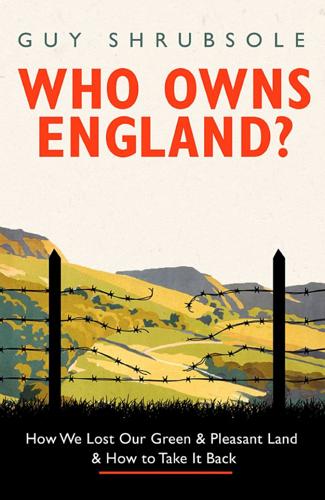
Who Owns England?: How We Lost Our Green and Pleasant Land, and How to Take It Back
by
Guy Shrubsole
Published 1 May 2019
It was this coastline that gave our island its first recorded name. Caesar’s Roman invasion force called it Albion, from albus, Latin for ‘white’. Over the past thousand years, the White Cliffs have come to symbolise indomitable England, our seas and soldiers repelling all who would dare conquer this sceptred isle: the Spanish Armada, Napoleon, Hitler. Stare out across the Channel from these windswept headlands, and you can almost hear the thrum of Spitfires above you, and catch strains of Vera Lynn singing about bluebirds. In less clement weather, the clifftops recall that famous Second World War cartoon drawn by David Low, where a defiant Tommy stands on England’s edge shaking his fist at the gathering storm over Nazi-dominated Europe, with the caption, ‘VERY WELL, ALONE’.
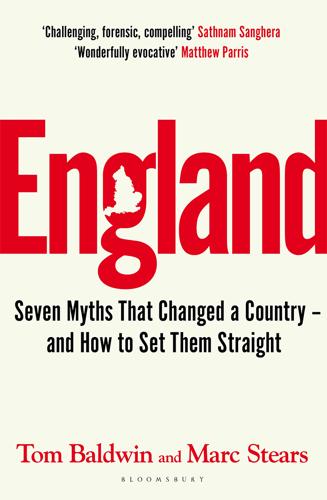
England: Seven Myths That Changed a Country – and How to Set Them Straight
by
Tom Baldwin
and
Marc Stears
Published 24 Apr 2024
The water’s depth is a metaphor for love, its expanse the route to exploration of ‘unpathed waters, undreamed shores’, and its wildness the cause of shocking change as in his three shipwreck plays, The Comedy of Errors, The Tempest and Twelfth Night − ‘what country, friends, is this?’ But the ‘sceptred isle’ speech of John O’Gaunt in Richard II pays homage to the ‘precious jewel set in a silver sea’ which acts as a ‘moat defensive’ for England. In the intense nationalism of Henry V, Shakespeare wrote about the ‘threaden sails’ and ‘lofty surge’ of the navy as his ‘band of brothers’ crosses the Channel to make war on the French who have dared to underestimate the English.
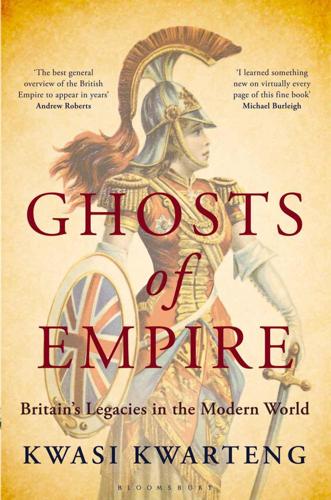
Ghosts of Empire: Britain's Legacies in the Modern World
by
Kwasi Kwarteng
Published 14 Aug 2011
Patten was a child of the liberal 1960s and blindly believed a version of his country’s history that presented the British Empire as an enlightened liberal force, spreading democracy and freedom to the furthest shores of the earth. Margaret Thatcher had grown up through the Second World War, listening to, and believing, Churchill’s late Victorian rhetoric that invoked Shakespeare’s ‘sceptred isle’ imagery; she genuinely shared the Whiggish notion that British history, with its Magna Carta and Glorious Revolution, was the story of the development of ‘freedom’ and liberal democratic ideas of government. So far as this idea was true for Britain, it did not apply to any real extent to the administration of the British Empire, which was always a wholly different political organization from Britain itself.
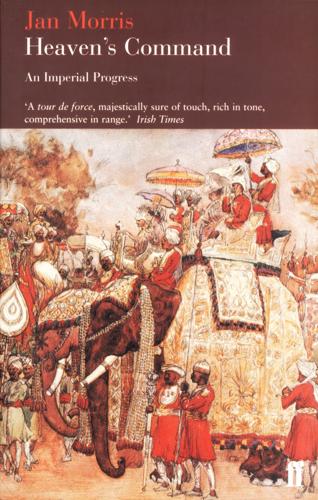
Heaven's Command (Pax Britannica)
by
Jan Morris
Published 22 Dec 2010
Even there they overflowed the seats, sitting on the floor and hanging about the doors: and from the high dais of Wren’s little masterpiece, beneath the painted putti on the ceiling, rolling back their painted tentage to reveal the pale blue sky behind, Ruskin delivered his call for the ideology of Empire: There is a destiny now possible to us, the highest ever set before a nation to be accepted or refused … Will you youths of England make your country again a royal throne of kings, a sceptred isle, for all the world a source of light, a centre of peace; mistress of learning and of the Arts, faithful guardian of time-honoured principles? This is what England must either do or perish; she must found colonies as fast and as far as she is able, formed of her most energetic and worthiest men; seizing every piece of fruitful waste ground she can set her foot on, and there teaching these her colonists that their chief virtue is to be fidelity to their country, and their first aim is to be to advance the power of England by land and sea … If we can get men, for little pay, to cast themselves against cannon-mouths for love of England, we may find men also who will plough and sow for her, who will behave kindly and righteously for her, and who will bring up their children to love her … You think that an impossible ideal.
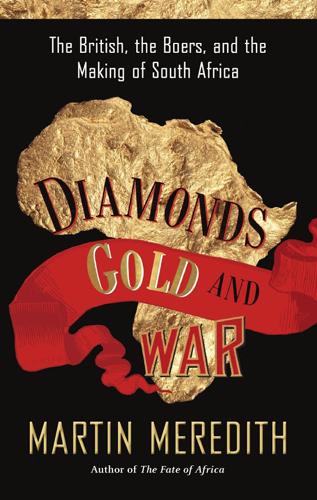
Diamonds, Gold, and War: The British, the Boers, and the Making of South Africa
by
Martin Meredith
Published 1 Jan 2007
The other publication, an inaugural lecture by John Ruskin as Slade Professor at Oxford, delivered in 1870, was brimful of imperial fervour: There is a destiny now possible to us, the highest ever set before a nation to be accepted or refused. We are still undegenerate in race; a race mingled with the best northern blood. We are not yet dissolute in temper, but still have the firmness to govern and the grace to obey . . . Will you youths of England make your country again a royal throne of kings, a sceptred isle, for all the world a source of light, a centre of peace; mistress of learning and of the Arts, faithful guardian of time-tried principles . . .? This is what England must either do or perish: she must found colonies as fast and as far as she is able, formed of her most energetic and worthiest men; seizing every piece of fruitful waste grounds she can set her foot on, and there teaching these her colonists that their chief virtue is to be fidelity to their country, and their first aim is to be to advance the power of England by land and sea . . .

England
by
David Else
Published 14 Oct 2010
Contents Destination England Getting Started Events Calendar Itineraries History The Culture Food & Drink Environment London The Southeast Oxford, the Cotswolds & Around Wessex Devon & Cornwall East Anglia The East Midlands The West Midlands & the Marches Yorkshire The Northwest Cumbria & the Lake District The Northeast Directory Transport Health Glossary The Authors Behind the Scenes Map Legend * * * Destination England Throughout its long history, it’s been a green and pleasant land, a sceptred isle and a nation of shopkeepers. It’s stood as a beacon of democracy and a bastion of ideological freedom, as well as a crucible of empire and a cradle of class oppression. The Magna Carta, the King James Bible and the welfare state were all dreamt up here, but then again so were beer bellies, Bovril and Mr Bean.
…
One Planet Future (www.wwf.org.uk/oneplanet/) WWF campaign for making Britain greener, with practical tips on ecotravel. Return to beginning of chapter READING UP What better way to get acquainted with England than by reading someone else’s adventures? Here are some of our favourite books about English travel, along with a few tomes exploring the quirkier side of this sceptred isle. Notes from a Small Island is a bestselling memoir by the American-born author Bill Bryson, based on trips around Britain in the 1970s and ’80s. Employing Bryson’s trademark fussy style and self-deprecating wit, it’s incisive, observant and very funny. In Search of England by HV Morton is one of the classic prewar English travelogues, written by a veteran Daily Express columnist in the 1920s.
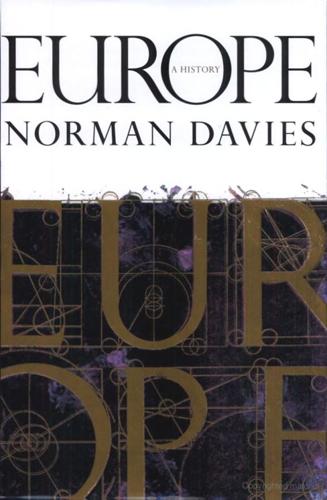
Europe: A History
by
Norman Davies
Published 1 Jan 1996
The inhabitants of the Caucasus are Eurasians in more senses than one. [CAUCASIA] 5. Europe was endowed by Nature with ten thousand islands. The largest of them—Iceland, Ireland, Great Britain, Corsica, Sardinia, Sicily, and Crete—have been able at various times to develop distinct cultures and political entities of their own. One sceptred isle, in exceptional circumstances and for a very brief period, was able to amass the largest empire in world history. They are all part of Europe, yet physically and psychologically separate. As the twin slots on the post-boxes in Messina and Syracuse rightly indicate, there are two different worlds— Sicilia and Continente.